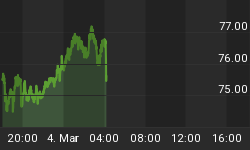While fear itself is not always the product of irrationality, once experienced it tends to lead away from reason, especially if the experience is extreme in duration or intensity. When people are fearful they tend to be willing to irrationally surrender their rights.
Thus, fear is a threat to rational liberty. The psychology of fear is an essential component of those who would have us believe we must increasingly rely on the elite who manage the apparatus of the central government.
The statement "Those who would give up Essential Liberty to purchase a little Temporary Safety, deserve neither Liberty nor Safety" has been attributed to Benjamin Franklin. It is clear, people seek out safety and security when they are in a state of fear, and it is the result of this psychological state that often leads to the surrender of liberty.
As Washington moves towards it summer legislative recess, indications of fear are apparent. Things seem similar to the days before the war in Iraq. Prior to the beginning of the war, several government officials began using phrases like "we don't want the smoking gun to come in the form of a mushroom cloud," and they spoke of drone airplanes being sent to our country to do us great harm.
It is hard to overstate the damage this approach does psychologically, especially to younger people. Of course, we now know there were no weapons of mass destruction in Iraq, let alone any capacity to put them to successful use.
To calm fears, Americans accepted the patriot act and the doctrine of pre-emptive war. We tolerated new laws that allow the government to snoop on us, listen to our phone calls, track our financial dealings, make us strip down at airports and even limited the rights of habeas corpus and trial by jury. Like some dysfunctional episode of the twilight zone, we allowed the summit of our imagination to be linked up with the pit of our fears.
Paranoia can be treated, but the loss of liberty resulting from the social psychology to which we continue to subject ourselves is not easily reversed. People who would have previously battled against encroachments on civil liberties now explain the "necessity" of those "temporary security measures" Franklin is said to have railed against.
Americans must reflect on their irrational fears if we are to turn the tide against the steady erosion of our freedoms. Fear is the enemy. The logically confusing admonition to "fear only fear" does not help, instead we must battle against irrational fear and the fear-mongers who promote it.
It is incumbent on a great nation to remain confident, if it wishes to remain free. We need not be ignorant to real threats to our safety, against which we must remain vigilant. We need only to banish to the ash heap of history the notion that we ought to be ruled by our fears and those who use them to enhance their own power.















